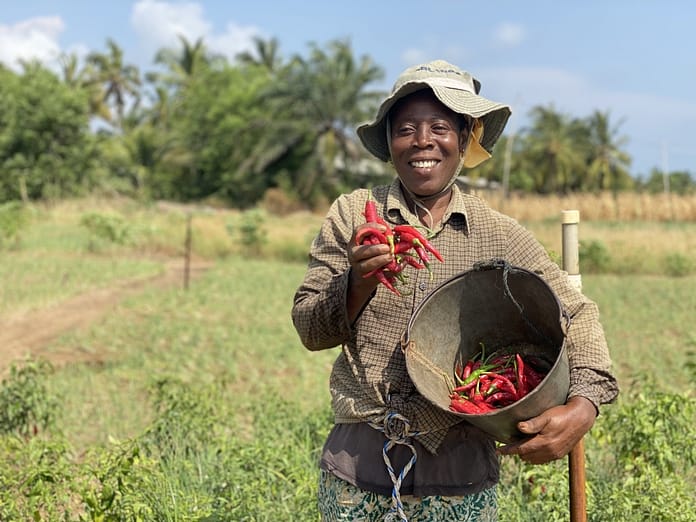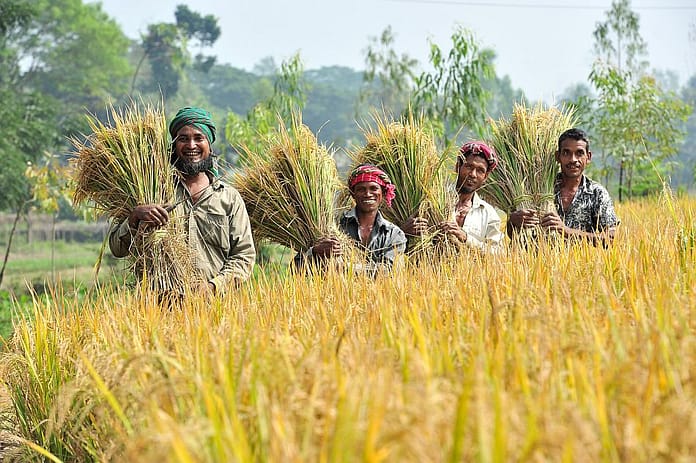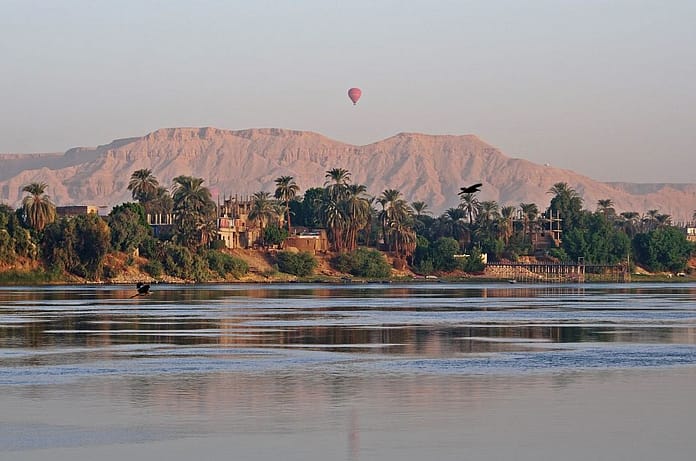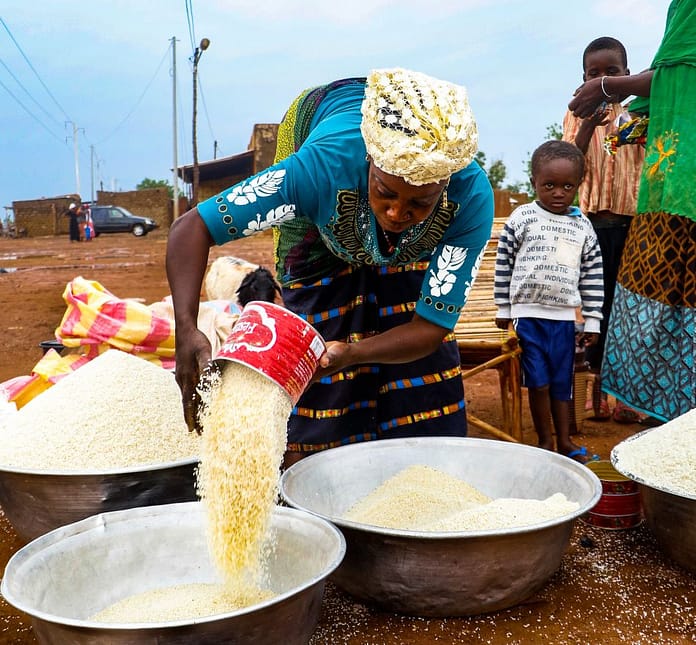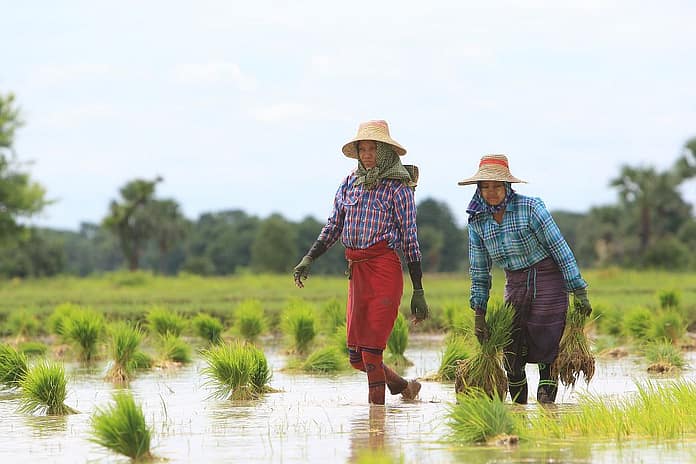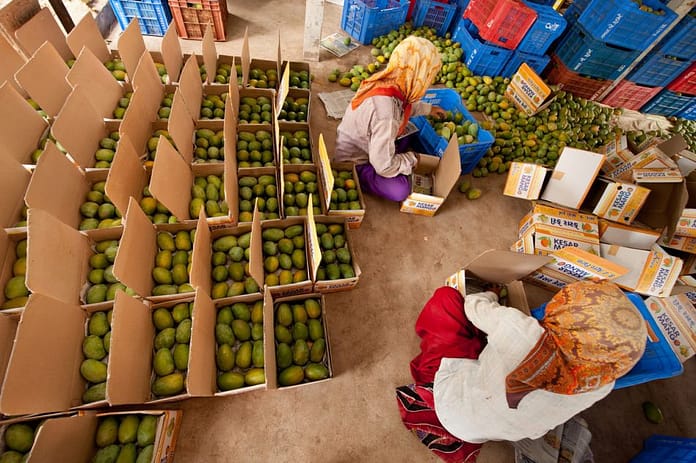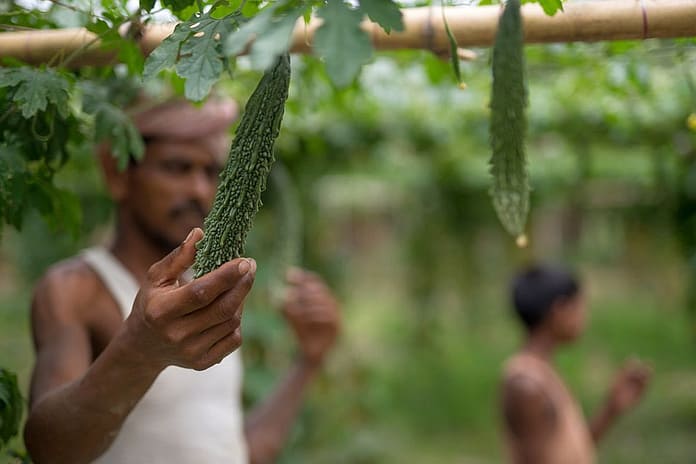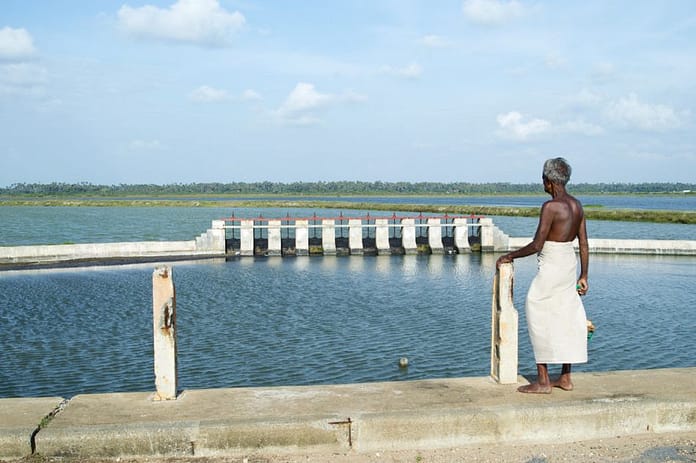IWMI contributions to Research in June and July of 2023
By Luisa Chantler Edmond, Princeton in Asia Fellow
Water is a precious global resource that must be protected. Allowing our water resources to be mismanaged will result in increasing vulnerability to the effects of climate change, with a disproportionate impact on the global south. This June and July IWMI researchers have been working at a local, regional, national, and global level to address intersectional issues related to efficient water management. To learn more about what IWMI is doing in sectors ranging from Climate-Smart Agriculture to international water law, read this research journal roundup. Open access articles exploring the work in full detail can be found at the DOI links below.

Assessment of solid and liquid wastes management and health impacts along the failed sewerage systems in capital cities of African countries: case of Abidjan, Côte d’Ivoire.
In the municipality of Yopougon, Côte d’Ivoire, defunct sewage networks and wastewater management pose a serious threat to the population and environment. By identifying pollution indicators in wastewater as well as surveying Yopougon households, IWMI’s Komlavi Akpoti and colleagues undertook a study that revealed the negative impacts of waste and sanitation mismanagement. Pollution indicators in Yopougon wastewater were above both World Health Organization (WHO) and Côte d’Ivoire policy guidelines, which is consistent with the findings that households in the area were especially vulnerable to infectious disease. The research, published in Frontiers in water and human health, suggests that interventions such as the use of alternative wastewater treatment technology are key to preventing environmental and health degradation.
Read more here
How best to incorporate conjunctive water management into international water law: legal amendment, instrument coupling, or new protocol adoption?
International water conventions do not suitably address groundwater and surface water interactions. To address this problem, a new paper co-authored by IWMI’s Jonathan Lautze asks whether it is better to adopt new conjunctive water protocols or revise existing legal frameworks. By investigating the suitability of current water protocol and noting a lack of focus on new protocols internationally, the authors compared the benefits of employing new protocols vs the modification of existing law. Their findings, published by International Environmental Agreements: Politics, Law, and Economics, suggest that both establishing new conjunctive water protocols and amending the existing frameworks will ensure water conventions do not overlook these crucial interactions.
Read more here
The place of social transformation analysis in vulnerability assessment for climate adaptation planning in Upper West Region, Ghana: A review synthesis.
Social transformation could influence climate vulnerabilities but is rarely considered in relation to climate vulnerability research. IWMI’s Charity Osei-Amponsah and William Quarmine note that research tends to focus on the exposure of rural populations to climate hazards, overlooking social transformation. In the Upper West region of Ghana technological, demographic, and cultural shifts are recognized as having both a positive and negative impact on the vulnerability of regional households. After reviewing the literature, the authors propose that an investigation of changing social factors will inform successful climate adaptation planning. Published in Climate Resilience and Sustainability the paper suggests that an intersectional assessment will establish more effective climate hazard management.
Read more here
Predicting optical water quality indicators from remote sensing using machine learning algorithms in tropical highlands of Ethiopia.
Water monitoring is important as intensifying agriculture and population growth have led to the degradation of water quality in freshwater bodies across the globe. Focusing on Lake Tana in Ethiopia, IWMI’s Seifu Admassu Tilahun and colleagues identified current data collection inefficiencies and assessed the use of six machine learning (ML) algorithms with remote sensing imagery in carrying out water quality analysis. Their work showed that ensemble ML and remote sensing imagery could be utilized to provide accurate water quality maps which identify sources of pollution and reveal water quality trends across a large freshwater body. The study can be found in Hydrology and indicates that regular and fast water quality monitoring using ML could help both policy makers and researchers to protect freshwater ecosystems from degradation.
Read more here
Characterization and outlook of climatic hazards in an agricultural area of Pakistan.
Agricultural areas across the globe are vulnerable to the impact of human induced climate hazards like drought and extreme heat. Despite this awareness, IWMI researchers Muhammad Tousif Bhatti and Kashif Hussain identified a gap in the literature which overlooks localized climate hazard research, in areas such as the Gomal Zam Dam Command Area in Pakistan. To address this lack of research the authors analyzed and assessed climate predictions and hazard characterizations in the Gomal Zam Dam Command Area, revealing that regional specific action must be taken immediately to protect the area from the threats posed by climate change. The paper features in Scientific Reports 13 and suggests that regional research should be carried out in other under-represented areas to ensure localized specificity is established in climate hazard policy and management recommendations.
Read more here
Towards lower greenhouse gas emissions agriculture in North Africa through climate-smart agriculture: a systematic review.
Agricultural emissions across North Africa must fall if the region is to meet its climate action commitments and act as a touchstone for the rest of Africa. A study led by IWMI’s Youssef Brouziyne represents the first literature review and attempt to understand whether Climate-Smart Agriculture (CSA) practices are being used properly to help reduce North African agricultural emissions. CSA practices seek to improve incomes, ensure resilience and adaptation, and reduce greenhouse gas emissions. Published in MDPI Climate, the study found that despite the suitability of CSA use in North Africa, it is not being used effectively in the region. By reviewing studies related to North African CSA practices Dr. Brouziyne and colleagues provide a set of recommendations for CSA that will help to reduce emissions.
Read more here



